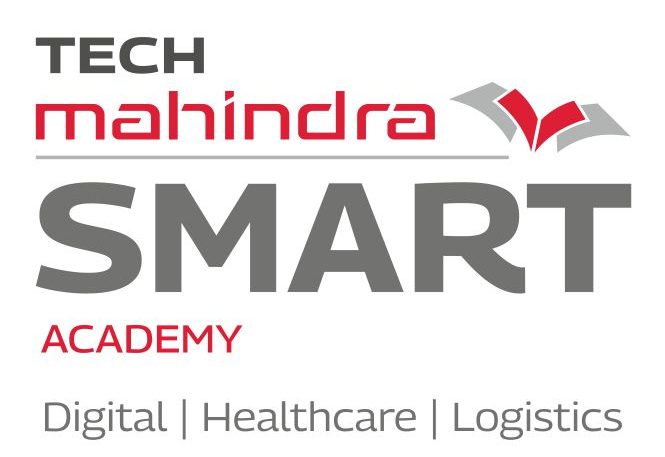Table of Contents
ToggleIn the modern globalised world, e-commerce orders are flying across the city, manufacturing plants in various locations accessing raw materials in different parts of the world, and logistics and supply chain management is the bedrock on which all this is being run smoothly. These courses show you how goods, information and resources move between point A and point B, often through many nodes, in a manner that satisfies the demands in a cost-effective, fast and with minimal waste. This also highlights the benefits of supply chain management, especially in ensuring speed, accuracy, and reduced operational costs.
The recent years have demonstrated the extent of the criticality of this sector. Weak links in supply chains are exposed through disruptions such as port delays, labour shortages or sudden spikes in demand. As businesses adjust to these realities, many have realised that the benefits of supply chain management also include resilience, adaptability, and the ability to maintain continuity even during crises.
Different Paths: Logistics Degree vs Diploma vs Short-Term Courses
Logistics Courses & Logistics Degree
A degree in logistics usually denotes a full-time, normally 3- or 4-year undergraduate degree provided by a university in which you are exposed to all the key disciplines: transportation management, warehousing, procurement, forecasting, international logistics, supply chain strategy, etc. It provides a wide and profound background. To the applicant of the leader post, strategic jobs, or even in international trading, a degree provides the applicant with the credibility, theory and practice and in other cases, the academic recognition to proceed with the post-graduate studies (such as a master’s degree).
Diploma in Logistics and Supply Chain Management
A logistics and supply chain management diploma, on the other hand, is less lengthy (usually 1-2 years, or fewer), more specialised and practical. It is best when you like to get into the field fast, or change occupation, or specialise in a subdivision (warehousing, procurement, freight forwarding, etc.). Diplomas can include internships and practical aspects, such that the graduates can be employed in less time.
Shorter / Certificate Logistics Courses
Then there are shorter logistics courses or certification programs. These are often domain-specific (say, inventory management, international logistics, or shipping documentation), useful to augment skills, pivot roles, or update knowledge in fast-moving areas (technology, software tools, sustainability in supply chains, etc.).
Key Benefits of Supply Chain Management
Understanding the benefits of supply chain management helps students and professionals see why this field is expanding rapidly. Some major advantages include:
- Cost Efficiency – A core part of the benefits of supply chain management is the ability to streamline processes, reduce waste, and improve coordination across suppliers, distributors, and logistics teams.
- Faster Delivery Timelines – Ensures products move smoothly across the value chain.
- Risk Reduction & Resilience – Companies can prepare for uncertainties through better forecasting and planning.
- Improved Inventory Control – Predictive planning helps avoid overstocking or stockouts.
- Stronger Supplier & Customer Relationships – Better communication and coordination lead to long-term partnerships.
- Competitive Advantage – Companies that understand the benefits of supply chain management often outperform competitors in customer service, delivery, and pricing.
What SMART Academy Offers Something Uniquely Different
Tech Mahindra’s SMART Academy for Logistics & Supply Chain Management is not just another training provider. It differentiates itself in several key ways:
- Industry-aligned curriculum: The Logistics & Supply Chain Management course at SMART Academy covers a wide spectrum of transportation management, warehousing and distribution, strategic sourcing, supply chain network design, lean chain principles, constraints management, etc.
- Hands-on, practical exposure: Courses include on-the-job training, internships, and real-life case studies. They emphasize employability skills like soft skills, English, and communication, which many logistics courses ignore.
- Multiple locations, flexible modes: Offered in cities like Visakhapatnam, Bhubaneswar, Chennai, Hyderabad. Also, it provides both classroom and online.
- Strong placement support: A dedicated placement team, projects, and internship opportunities ensure students not only learn but also move into roles such as Warehouse Operations Executive, Transportation Executive, Supply Chain Analyst, Fulfilment Executive, etc.
- Focused on the growing demand: The Academy is designed for graduates (or those about to graduate) who want to start careers in a fast-growing sector. The eligibility criteria, duration, and content are shaped to balance speed and depth.
Who Should Consider Each Path?
| If you | Best Option |
| Want a broad academic foundation, possibly leading to higher studies / leadership roles | Go for a logistics degree |
| Are eager to start working soon, want practical skills, perhaps shift into logistics/supply chain quickly | Consider a diploma in logistics and supply chain management or certificate-level logistics courses |
| Already working and looking to upgrade or specialize | Shorter logistics & supply chain management courses or specific modules (warehousing, procurement, etc.) |
SMART अकैडमी caters especially well to those in the second and third categories: graduates who want to get into this sector soon, professionals who want focused, job-oriented training with placements, not just theory.
The Demand, Growth, and Career Prospects
- Industries like e-commerce, manufacturing, shipping, retail, and FMCG depend heavily on supply chains. As technology evolves with AI, automation, IoT, and analytics, skilled professionals are needed to harness the benefits of supply chain management and ensure businesses stay competitive.
- With technological shifts (automation, IoT, AI, analytics), the nature of logistics is evolving. Professionals need updated skills, not just traditional methods.
- Job roles are diverse (see above): you might start in warehouse operations, move to demand forecasting, get into procurement strategy, or into global logistics coordination.
- Because global trade is expanding, cross-border logistics and international supply chain roles are opening up, increasing prospects for those trained in this field.
SMART Academy vs Other Institutions: What’s the Edge
Things to Check Before Choosing a Course / Diploma / Degree
- Accreditation & Recognition: Is the diploma recognized by industry bodies? Do the logistics courses have certification aligned with sector skill councils?
- Curriculum Depth & Breadth: Does it have core modules like transportation, warehousing, demand forecasting, and international logistics? And lighter modules like soft skills, technology tools?
- Hands-on Training & Internships: Practical exposure matters a lot in logistics & supply chain management.
- Placement Support & Alumni Outcomes: Where have past students gone? What roles? How soon after finishing?
- Flexibility: Location, online / hybrid, part-time vs full-time; these matter especially if you’re already working or constrained by geography.
निष्कर्ष
If you’re planning a career in logistics and supply chain, this is the right time to begin. Whether you select a degree, diploma, or short-term training, the benefits of supply chain management cost savings, faster processes, better customer satisfaction, and global career opportunities, the demand is strong and growing. What matters most is choosing a program that balances theory with practice, gives exposure to real-world logistics challenges, includes soft skills, and supports your transition into work.
That’s where Tech Mahindra SMART Academy stands out. With its industry-aligned curriculum, practical training, multiple locations + online flexibility, and strong placement support, it offers more than just logistics & supply chain management courses; it delivers a fast, robust pathway into a vibrant sector. If you are serious about launching or upgrading your career in logistics, it’s not just an option; it’s among the best.
पूछे जाने वाले सवाल
SMART Academy’s Logistics & Supply Chain Management course generally lasts for 4 months, followed by placements or internships to ensure hands-on job experience.
Eligibility usually includes graduation (or being in the final year of a degree) with age criteria (often between 20-26 years, varying by course). For some logistics courses, there may be additional requirements.
Graduates can expect to move into roles such as: Warehouse Operations Executive, Transportation Executive, Fulfilment or Distribution roles, Customer Service Executive (Logistics), Purchase / Procurement Executive, Supply Chain Analyst, Inventory / Materials Planner, or other coordination roles in shipping, documentation, and international logistics.
Yes, a career in supply chain is a good fit because of the industry’s high demand, favorable pay potential, stability of employment, and chances for growth.

